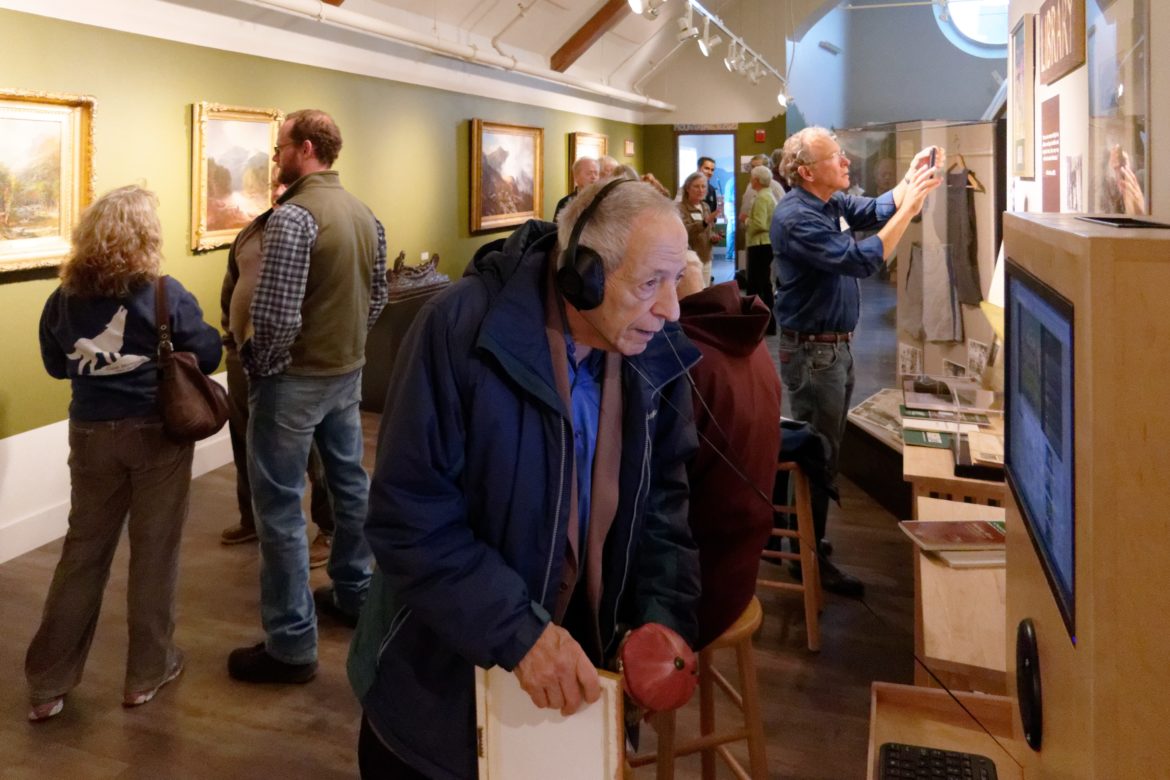By Chris Jensen
InDepthNH.org
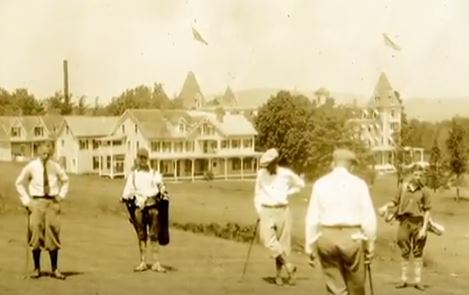
Museum photo
PLYMOUTH – For more than 130 years boys and girls – typically from relatively well-to-do families – have been going to summer camps in The White Mountains.
But there were also children recruited from the poorer neighborhoods of Boston to go to “caddy camps” in towns such as Bethlehem.
They lived in a barn, earned money as golf caddies for wealthy vacationers and say they loved it.
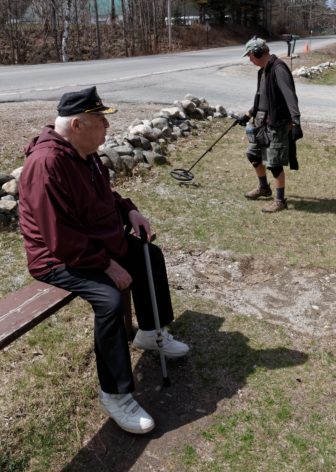
In the early years of the caddy camps a time capsule was buried near where the boys lived in Bethlehem. Keith Mara of The Granite State Treasure Hunters Club for Historic Preservation, searched for it while Frank “Sonny” Piazza waited and kept his fingers crossed. It was not found. Photo by Chris Jensen
Their stories are among those told in a new exhibit at Plymouth State University’s Museum of The White Mountains. “Summer Camps: The White Mountains Roots of an Iconic American Experience” opened May 3rd and continues through September 13th.
The idea of summer camps started around 1861 in The White Mountains, said Paul Hutchinson, who shared curating duties with Cynthia Robinson and Marcia Schmidt Blaine. A few schools had outdoor programs in the summer, but what happened in The White Mountains – starting with Camp Chocorua on Squam Lake in 1881 – was different, said Hutchinson.
It introduced the idea of “a summer experience that was disconnected from a school” where campers stayed in a location where they were encouraged to feel a sense of ownership and connection, he said.
“And Squam Lake and Newfound Lake were really the epicenters of where these programs started off and then rippled off around the world,” Hutchinson said.
The boys for the caddy camps were often recruited from the North Bennett Street Industrial School in Boston.
One of them was 11-year-old Louis Cavagnaro, who in 1949 was thrilled with the idea of going to New Hampshire.
“Growing up in the North End, the furthest we went was 500 feet, so going somewhere with a group of kids to spend the summer – to me – was fantastic,” said Cavagnaro, in his oral history for the exhibit.
He says his mother cried at the train station, but he doesn’t remember ever being scared.
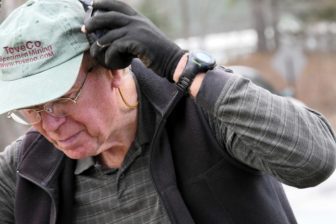
Keith Mara. Photo by Chris Jensen
“We were happy, happy,” said Cavagnaro, who now lives in Revere, Mass. “We got 75 cents for 18 holes in my era. Then it increased and you would get a dollar if you carried two bags.”
They had to do chores, go to church, saluted the flag every morning, swam in the Ammonoosuc River and had three meals, a day, something that didn’t always happen at home.
Hutchinson said what summer camps demonstrated was “a common shared belief that kids learn best and communities are built well when you are in this kind of environment. When you are connected to nature. When you are out together. When you are sharing doing the dishes. When you are sharing the nervousness of a lightning storm. When you have common shared experiences.”
Oral histories of those who attended the caddy camp – and other camps – are available at the museum.
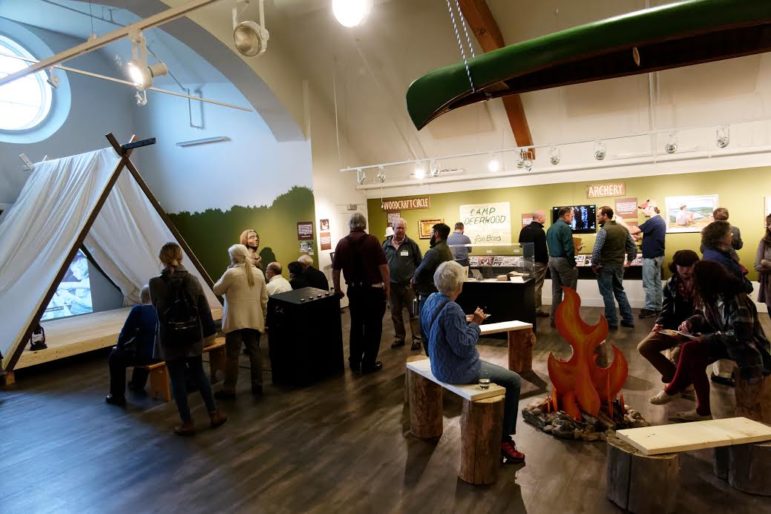 The exhibit is open until September 13th at Plymouth State University’s Museum of The White Mountains. Photo by Chris Jensen[/caption]
The exhibit is open until September 13th at Plymouth State University’s Museum of The White Mountains. Photo by Chris Jensen[/caption]
christopherjensennh@gmail.com
RePublish Our Story
Support In-Depth New Hampshire
We depend on your support. A generous gift in any amount helps us continue to bring you this service.
Recent Posts
-

Distant Dome: Willfully and Knowingly Making a Mess of Public Education
By GARRY RAYNO, InDepthNH.org If you watched the House session Thursday, you had to realize the message the Republican majority is sending on public education.
-

Gov. Ayotte Signs 19 Bills Into Law; Vetoes One
This week, Governor Kelly Ayotte signed the following bills into law: HB 62 - Relative to protection of persons from domestic violence and military protective orders.
-

Carbon Sequestration, Sobriety Check Refusal Punishment Now Part of Parental Rights Bill
By PAULA TRACY, InDepthNH.org CONCORD - A measure to impose a moratorium on creating any new carbon sequestration forest farms in the state and the formation of a study committee on the impacts to the municipal timber tax revenue is more likely to pass into law after Littleton Republican Sen. David Rochefort got his colleagues to include it in a non-related parental rights bill.
-

House Votes New Requirements for Absentee Voting
By GARRY RAYNO, InDepthNH.org CONCORD — The House made it more difficult to vote by absentee ballot passing several bills that will require more information to vote in absentia Thursday.
-

Education Freedom Accounts Expanded by House
By GARRY RAYNO, InDepthNH.org CONCORD — The House once again voted to expand the Education Freedom Account program, opening it to any New Hampshire child regardless of his or her parents’ income.
